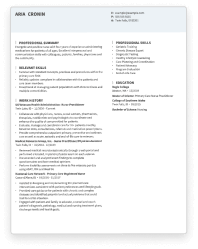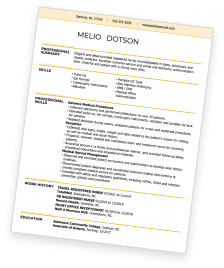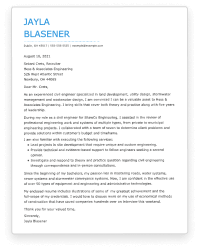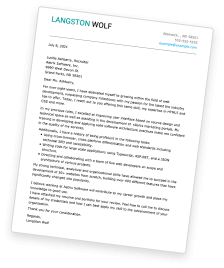Economist Resumes: Overview
Economists are pivotal in analyzing economic issues, developing forecasts, and advising both public and private sectors on various financial strategies.
They delve into data, using statistical and econometric methods to understand market trends, evaluate economic policies, and recommend solutions.
Their work can span various environments, including:
- Government Agencies
- Research Institutions
- Financial Services Firms
- Consultancy Agencies
- International Organizations
Crafting a standout resume is essential for securing your next role as an economist.
Our curated resume examples and downloadable templates are designed to guide you in showcasing your analytical skills, research achievements, and ability to translate complex economic concepts into actionable insights.
Economist Resume: Choose A Format
Choosing the right template and format for your economist resume is a critical first step to showcasing your qualifications in the most compelling way.
It’s crucial to select a resume format that highlights your strengths and makes you stand out in a competitive job market.
There are three primary resume formats that economists can consider:
Chronological Resumes for Economists
The chronological resume format is highly recommended for economists with a solid track record of relevant professional experience.
This format lists your work history in reverse chronological order, emphasizing your career progression and significant accomplishments.
In each role, detail your responsibilities and achievements, using strong action verbs and quantifiable outcomes to illustrate your impact on economic research, policy analysis, or strategic decision-making.
This format is also ATS-friendly, making it easier for your resume to be selected during the initial screening process.
Functional Resumes for Economists
Functional resumes focus on the skills and knowledge you bring to the table, rather than your job history.
This format can be beneficial for early-career economists, career changers, or those with gaps in their employment history.
Highlight your economic analysis capabilities, quantitative research skills, and any specialized knowledge in areas like macroeconomic forecasting or microeconomic analysis.
While functional resumes can help showcase specific skills, they are often less effective with ATS systems and may not provide a clear picture of your career trajectory to potential employers.
Combination Resumes for Economists
A combination resume blends the chronological and functional formats, allowing you to showcase both your work history and key skills.
This can be particularly effective for economists who want to highlight their expertise in specific areas of economics while also detailing their professional experience.
For example, you might emphasize your proficiency in econometric modeling and data analysis upfront, followed by a concise listing of your work experience that includes specific projects or research you’ve conducted.
Choosing a Format
Selecting the right format for your economist resume depends on your individual career path and the position you’re applying for.
If you have a strong professional background with clear progression in the field of economics, a chronological format is likely your best option.
If you’re newer to the field or looking to emphasize specific skills or areas of expertise, consider the functional or combination formats.
Remember, the goal is to present your qualifications in a way that is both authentic and strategically aligned with the job requirements, ensuring your resume resonates with potential employers and sets you apart as a top candidate.
How To Write An Economist Resume
Selecting the appropriate format for your economist resume is just the beginning. Knowing how to outline and then write your resume are the next steps.
To effectively communicate your qualifications, there are five critical sections you should include in your resume, with the option to add more if they enhance your application.
Those essential sections are:
- Contact Information
- Summary or Objective
- Work History
- Skills
- Education
Each component is integral to illustrating your suitability for an economist position, providing a comprehensive overview of your professional and academic background.
Additional sections, such as awards and certifications, can also be included as long as their relevant and help expand your qualifications further.
Contact Information
Include your full name, phone number, professional email address, and your current location (city and state) at the top of your resume.
If relevant, you can also add your LinkedIn profile, personal website, or portfolio to offer a deeper insight into your professional experiences and achievements.
Make sure this information is prominently placed and easily readable. While it’s important to make your name stand out, ensure that the design does not detract from the content of your resume.
An economist’s contact information might be formatted as follows:
John Doe
Washington, DC
john.doe@fake.email.com
(555) 123-4567
fake.linkedin.com/in/johndoe
johndoeportfolio.fake.com
This setup ensures that potential employers can easily contact you and learn more about your professional background and skills.
Summary or Objective
Your resume should begin with a concise summary or objective right after the contact information. This section serves to introduce you and highlight your most pertinent qualifications and career aspirations.
Resume Summary: Ideal for those with a wealth of experience in economics, the summary should encapsulate your professional achievements, key skills, and how they align with the job you’re applying for.
Example:
“Experienced Economist with over 10 years of comprehensive experience in macroeconomic analysis and policy development. Proven track record of employing complex data to formulate economic forecasts and actionable policy recommendations. Recognized for exceptional skills in statistical analysis, econometric modeling, and presenting complex economic concepts to non-expert audiences. Committed to leveraging economic insights to inform strategic decision-making.”
Resume Objective: More suited to recent graduates or those changing careers into economics, the objective focuses on your career goals and how they match the opportunities the position presents.
Example:
“Aspiring Economist recently graduated with a Master’s degree in Economics, specializing in quantitative analysis and econometric modeling. Passionate about applying academic knowledge to real-world economic research and policy analysis. Eager to contribute to impactful economic studies and forecasts. Looking to develop a robust career by providing insightful economic solutions.”
Note: Whether you opt for a summary or an objective, tailor this section to incorporate relevant keywords from the job description. This strategy not only makes your resume more ATS-friendly but also ensures you immediately catch the attention of the hiring manager by highlighting how your qualifications align with the job requirements.
Work History
The “Work History” section is vital for illustrating your career path and professional accomplishments as an economist.
Employers look for concrete examples of how you’ve applied your economic expertise to solve problems, inform decisions, or contribute to research.
Begin with your most recent job and list your experiences in reverse chronological order. Focus on roles that showcase your capabilities as an economist, emphasizing tasks and achievements relevant to the role you’re seeking.
Employ robust action verbs and quantify your achievements wherever possible to add weight to your contributions and outcomes. This approach not only showcases your impact but also differentiates you from other candidates by providing a measurable account of your professional success.
Example of an economist’s resume work history:
Senior Economist
Department of Economic Analysis, MetroCity Government
01/2016 – Present
- Led a team in conducting comprehensive economic impact analyses of proposed municipal policies, influencing key legislative decisions.
- Developed and refined econometric models that improved the accuracy of local economic forecasts by 25%.
- Authored a quarterly report on economic trends and labor market dynamics that guided the city’s strategic planning and investment decisions.
- Presented findings to city officials and stakeholders, enhancing understanding of complex economic concepts and informing evidence-based policy-making.
- Collaborated with universities and research institutions to conduct joint studies on urban economic development and housing market trends.
By detailing your roles and accomplishments in this manner, you provide potential employers with a clear picture of your professional journey and the value you bring as an economist.
Skills
For economists, showcasing a robust set of skills is essential to demonstrate both your analytical capabilities and your soft skills, which are critical for complex analyses and team collaborations.
Similar to your work history, prioritize the hard skills and soft skills that align most closely with the job you’re applying for.
Top 5 Hard Skills for Economist Resumes
- Economic Analysis: Proficiency in applying economic theories and principles to analyze current trends and forecast future developments.
- Statistical Software Proficiency: Expertise in software like R, Stata, or SAS for complex data analysis and econometric modeling, and other computer skills.
- Policy Development: Experience in formulating policy recommendations based on thorough economic analysis.
- Quantitative Research: Ability to conduct robust quantitative research and apply mathematical models to solve economic problems.
- Data Visualization: Skill in transforming complex economic data into understandable and compelling visual formats for various audiences.
Top 5 Soft Skills for Economist Resumes
- Critical Thinking: The ability to analyze issues, identify economic implications, and evaluate solutions critically.
- Communication: Excellent verbal and written communication skills to convey complex economic concepts to non-specialists.
- Problem-solving: Adept at identifying economic problems and devising effective solutions.
- Attention to Detail: Precision and care in analyzing data and interpreting results.
- Collaboration: Experience working effectively in multidisciplinary teams to achieve project goals.
Your skills section might look like this:
Skills
- Advanced proficiency in statistical analysis using R and Stata
- Experienced in developing economic models and policy recommendations
- Strong communicator with the ability to present economic findings to diverse audiences
- Skilled in quantitative research methods and data visualization
- Collaborative team player with a track record of contributing to cross-functional projects
Highlighting these skills on your resume not only shows that you have the technical expertise required for the role but also that you possess the interpersonal qualities necessary to work effectively in diverse teams and communicate complex ideas clearly.
Education
The education section is a cornerstone of your resume, highlighting your academic achievements and laying the foundation for your expertise in economics.
List your highest degree first, including any specializations or majors relevant to your career as an economist.
Include the name and location of your institution. Additionally, you have the option to list graduation dates, and any honors or awards you received if it is relevant to the economist job description.
If you’ve completed coursework directly related to the position you’re applying for, consider listing those courses to demonstrate your specialized knowledge.
For economists, education often extends beyond undergraduate degrees, so include any advanced degrees (Masters, Ph.D.) with specifics about your field of study.
Example:
Ph.D. in Economics – University of Economics, City, State
- Dissertation on “The Impact of Fiscal Policy on Economic Growth in Developing Countries”
- Graduated Summa Cum Laude
Master of Science in Applied Economics – College of Business & Economics, City, State
- Concentration in Econometrics
- Thesis on “Econometric Analysis of Stock Market Volatility”
Bachelor of Science in Economics – City University, City, State
Additional Sections
Including additional sections in your resume can provide a fuller picture of you as a candidate, particularly if they highlight experiences or qualifications that are relevant to the role of an economist.
Consider adding sections for:
- Certifications: Such as Certified Business Economist (CBE) or any specialized econometric software certifications.
- Publications: List any research papers or articles you’ve published, especially those relevant to the position.
- Conferences: Mention significant conferences where you’ve presented your research or participated in panels.
- Professional Memberships: Inclusion in economic associations or societies can underscore your commitment to the field.
- Languages: Proficiency in additional languages, particularly valuable in international economics roles.
These sections can distinguish your application by demonstrating a broader set of skills and experiences, showcasing your dedication to the field of economics, and highlighting contributions to the academic or professional community.
Top Certifications for Economists
While economists may not require certifications in the same way some professions do, certain credentials can significantly enhance your marketability and showcase your expertise. Here are top certifications and memberships that could be advantageous for an economist’s resume:
- Certified Business Economist (CBE): Offered by the National Association for Business Economics, this certification demonstrates mastery in economic analysis and its application in business decision-making.
- Chartered Financial Analyst (CFA): While primarily finance-oriented, the CFA designation covers many topics relevant to economists, including quantitative methods, economics, financial reporting, and analysis.
- Data Analysis Certifications: Certifications in data analysis software (such as SAS, R, or Python) are highly valuable for economists, indicating proficiency in handling and analyzing economic data.
- Membership in Professional Economics Associations: Membership in organizations such as the American Economic Association (AEA) or the National Association for Business Economics (NABE) signals a commitment to the field and provides networking opportunities.
- Advanced Degrees: While not a certification per se, advanced degrees (Master’s or Ph.D.) in economics or related fields are often essential for higher-level positions in economics and can be considered a professional endorsement of your abilities.
Including certifications or memberships on your economist resume can significantly strengthen your application by highlighting your specialized knowledge, analytical skills, and dedication to continuous learning in the field of economics.
11 Tips For Writing an Economist Resume
Tailor Your Resume: Each application should be customized to highlight how your skills and experience align with the specific demands of the job posting. Emphasize your understanding of economic theories, data analysis, and forecasting as required.
Use Action Verbs: Start your sentences with action verbs such as analyzed, forecasted, developed, and researched to convey your active role in past achievements.
Quantify Achievements: Where possible, use numbers to make your accomplishments stand out. For example, “Led a project that increased company revenue by 20% through market analysis and forecasting.”
Incorporate Keywords: Look for keywords in the job description related to economic analysis, statistical software, or specific economic sectors, and include them in your resume to pass through Applicant Tracking Systems (ATS).
Highlight Analytical Skills: Demonstrate your ability to interpret data, forecast economic trends, and provide actionable insights.
Communicate Effectively: Show your ability to present complex economic concepts in an accessible way to non-specialists, including writing reports and presenting findings.
Professional Development: Mention any ongoing learning or professional development courses you’ve taken to keep up with economic theories and quantitative methods.
Technical Proficiency: List the economic modeling software and tools you’re proficient in, such as Stata, SPSS, or R.
Research and Publications: Include any relevant research work, publications, or presentations that showcase your expertise and contribution to the field.
Networking and Collaboration: Highlight experiences of working collaboratively on projects or being an active member of professional economic associations.
Proofread for Perfection: Ensure there are no errors in your resume. A mistake-free resume is crucial to present yourself as a detail-oriented professional.
Helping Job Seekers Like You


Use Hloom's Resume Builder
Key Takeaways
- Tailoring your economist resume to each job application is crucial to highlight how your expertise aligns with the specific needs of the position.
- Use numbers to demonstrate your impact, such as detailing how your analysis led to cost savings or how your research contributed to policy development.
- Clearly list economic modeling software, statistical tools, and methodologies you’re skilled in to showcase your technical capabilities.
- Highlight your ability to translate complex economic data into understandable insights for a broad audience, underscoring the importance of clear communication.
- Including your ongoing learning and any professional associations you’re part of reflects your commitment to staying current in the field.
Use Hloom's Cover Letter Builder
















